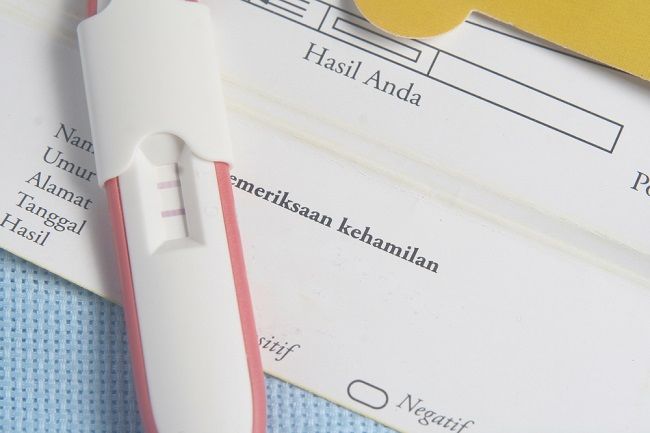After undergoing bowel surgery, often the intestines or incisions are painful. In fact, the pain from bowel surgery that arises is sometimes quite severe and feels very disturbing. To relieve it, there are several ways that can be tried.
Bowel surgery is a procedure used to treat various disorders of the intestine, such as appendicitis, colon cancer, intestinal infections, and diverticulitis. In general, bowel surgery is a safe procedure. However, after undergoing surgery, there is often pain in the intestines or scars from the incision.

There are several ways that can be done to relieve pain from bowel surgery, including taking pain medication, doing physical exercise slowly, managing stress, and not sitting too long. For more details, see the following explanation.
The Importance of Relieving Pain from Intestinal Surgery
Relieve pain from bowel surgery is very important to do. Besides making you comfortable, pain management can also speed up the recovery process and reduce the risk of complications from intestinal surgery, such as lung infections (pneumonia) and blood clots.
Bowel surgery with an incision in the upper abdomen can cause severe abdominal pain. If not treated properly, this condition can lead to serious complications, such as a buildup of phlegm, shortness of breath, lung collapse (atelectasis), and even death.
Be Careful Using Opioid Painkillers
In the early days after bowel surgery, there is often severe pain in the intestines or in the incision. To relieve severe pain, doctors will usually prescribe opioid drugs.
Please note, the use of opioid drugs has side effects, including nausea, vomiting, and constipation. In addition, opioid drugs can also affect bowel movements, thereby slowing the recovery process after bowel surgery.
Therefore, if the pain has subsided, it is advisable to immediately consult a doctor so that opioid drugs can be replaced with other types of pain relievers. Doctors can also recommend certain ways to relieve pain without medication.
Effective Ways to Relieve Pain from Intestinal Surgery
If you have recently had bowel surgery and are experiencing pain in the operated bowel or an incision wound, you can use the following methods to relieve it:
1. Take painkillers before severe pain appears
You don't have to wait for severe pain to appear before taking the medicine. The reason is, if it gets worse, the pain will be more difficult to relieve. Plus, it takes time for the medication to work to relieve pain.
Therefore, in the early days after surgery, take pain relievers as directed by your doctor. When the pain begins to improve, you can extend the time between taking the drug from one dose to the next until you can stop using it altogether.
2. Consider over-the-counter pain relievers
You don't always have to take painkillers prescribed by your doctor if your pain isn't too severe. Using over-the-counter pain relievers, such as ibuprofen or paracetamol , can also relieve pain from bowel surgery.
However, you should still consult a doctor first. In addition to considering whether or not the use of over-the-counter drugs is safe, the doctor will also determine which over-the-counter drugs are suitable for you.
3. Get enough rest and sleep
Getting enough sleep and rest is very important to do after bowel surgery. The reason is, getting enough sleep will speed up the recovery process after surgery, including increasing your body's ability to deal with pain.
4. Be active and do physical exercise gradually
When you feel that your condition has improved after surgery, it is a sign that you can return to normal activities soon. Increase your physical activity slowly until you are fully recovered and can return to your normal activities.
5. Don't sit too long
Sitting or lying down for too long can make the pain worse. Therefore, make it a habit to get up and walk every 1-2 hours throughout the day. Besides being able to relieve pain, this method is also useful for preventing the body from becoming stiff and reducing the risk of blood clots.
6. Hold the incision site from pressure
When you are going to do something that can cause pressure at the surgical site, such as sneezing and coughing, hold the surgical incision site with a pillow.
Besides being able to reduce the pain that appears, holding pressure on the surgical incision can also reduce the risk of complications from the surgical wound, such as opening the stitches and removing the intestine from the surgical incision.
7. Manage stress
Stress is the opposite of pain control. When stressed, the pain will usually get worse. Therefore, try to avoid situations that can stress you out, especially in the early days after surgery.
Doing deep breathing and relaxation exercises, such as reading a book, listening to music, and watching your favorite television show, can be very beneficial for controlling stress, so that the pain you are experiencing can also subside.
As long as you apply them correctly, the methods above are usually able to relieve the pain of bowel surgery within a few days. However, if these methods do not work and the pain from bowel surgery is very severe, see a doctor immediately so that further treatment can be given.
Written by:
dr. Sonny Seputra, M.Ked.Klin, Sp.B, FINACS
(Surgeon Specialist)









